Do you manage a large retailer, grocery chain, or big box store? Maybe you own or run a distribution or e-fulfillment center, or another type of multi-site facility. If so, it’s essential to know what the fire marshal and your local Authority Having Jurisdiction (AHJ) are looking for when it comes to adhering to some of the most prominent and straightforward building fire safety regulations. Knowing the frequent fire code violations found in businesses will help you pass fire safety inspections. The most common fire code violations include:
- Extension cords
- Blocked exits or fire doors
- Exit signs and faulty lighting
- Improper storage
- Blocked valves or exterior access points
- Incorrect sprinkler system
- Fire extinguisher issues
- Broken smoke detectors
- Fire alarms or pull station not working
- Hanging items from sprinkler heads or pipes
- Improper records
Learn the Common Fire Code Violations:
By learning about the frequent fire safety fails in businesses and the most common fire code violations of 2019, you can address your fire protection issues before they become costly fire code violation fines. Once you read the details, you’ll see most fire safety rules and regulations in the workplace are easy to comply with as part of your daily routine.
Fire Safety Door Regulations & Blocked Exits
Fire doors and exit area fire safety codes and regulations are some of the most straightforward rules to forget, as noted by the 2019 fire code violation results. It is vital to keep all doors and exits unblocked 100% of the time. Leaving deliveries in hallways or storing merchandise in front of doorways – even for a few short hours – could be life-threatening if fire breaks out and you need to evacuate. All emergency exit doors, hallways, pathways, and stairways must be kept clear of debris.
Additional Fire Safety Regulations:
Your building’s occupants must be able to open all exits quickly and easily. There should not be a special tool, key, or any unusual ways of opening an exit door to leave the building safely.
Just as exits must be easy to open, they must also be self-closing to avoid being accidentally left open
National Fire Protection Association (NFPA) 80 codes require fire doors remain closed at all times, except when being temporarily held open by an approved device.
Improper Use of Extension Cords
We have all done this at least once. We plan to use an extension cord as a temporary fix, and then it gets used for months or even years … This is one of the most severe code violations you can commit, and it is still one of the most common! Extension cords are designed for temporary use only and become a fire hazard and fire safety fail if used permanently.
You should never attach extension cords to each other, to permanent fixtures, or pass them through holes in the wall. To avoid the fire marshal showing up unannounced and doling out fines, get rid of extension cords and add more outlets.
Fire Safety Signage Regulations: Non-illuminated, Flickering, Blocked Exit Signs & Faulty Lighting
How often do you go into a store and the exit signs are flickering, or maybe the “EX” isn’t illuminated? Sometimes, there’s a banner or store sign over the exit sign. Non-illuminated or blocked exit signs are common code violations found in businesses, which are easily fixed to prevent an unwanted fine. This is an important part of fire safety codes and regulations.
All commercial buildings, including big box stores, retail and grocery stores, warehouses, and restaurants, are required to have illuminated, unblocked exit signs, and most are required to have emergency lights that remain lit for 90 minutes during power outages. These must be tested and certified annually in order to pass fire safety inspections.
Exit signs require backup batteries so occupants can safely evacuate in the dark while emergency backup lighting inspires calmness for smoother evacuations. Code requires exit signs and lighting to be checked monthly. It is also wise to change exit sign batteries as you do in your smoke detectors, on the same day every year.
Improper Storage in Fire Pump and Riser Rooms
Every business could use another storage closet, right? Especially for mops, brooms, and miscellaneous items. Fire marshals often see these items stored in fire pump and riser rooms, making this a common and costly fire code violation.
Fire pump and riser rooms are not the place to house anything other than fire protection equipment. In the event of a fire, emergency personnel needs to get into the space to work, and extra items prohibit or slow their ability to access the equipment.
Blocked Exterior Fire Department Connections and Valves
Landscaping such as trees, berms, and boulders or business equipment, pallets, and dumpsters are often in the way of the exterior fire department connection (FDC) and other access points, which is a common common fire code violation found in businesses. This violation of local fire code increases firefighter injuries, allows fires to increase in size, and slows down the rescue of occupants.
It is crucial that your exterior fire department connection (FDC) remains accessible for the fire department to instantly connect and operate the valves to extinguish a fire in your big box store, large retail store, warehouse, distribution center, or restaurant.
Maintain an open path from where the fire department will stage operations to the fire hydrants, the valves (post- and wall-valves), and the FDC.
An Incorrect Fire Sprinkler System
If your business is in a building originally built for another purpose, do you know if your fire sprinklers are up to local fire codes for your company’s current business purpose? For example, if you are a big box store in a building that used to be a storage warehouse, you will have vastly different sprinkler requirements for the space, commodities, and occupancy. If you have not updated your fire sprinklers to match your design and hazard classification, this is a code violation. And this mistake is surprisingly common.
Unfortunately, real estate sales of existing buildings are not regulated by fire codes. And building owners who update their business processes, change commodities, or move into a different location often do not understand that they need to update their fire protection system. As a result, local code enforcers end up advising the owners of the necessary upgrades.
If you are in the process of changing buildings or buying a repurposed building, consult with a fire protection company like AIE. We can evaluate your current system to your commodity classification, and help you design or retrofit your fire sprinkler system according to NFPA standards and your local AHJ.
Missing Fire Extinguishers
Missing, damaged, or partially used fire extinguishers are especially common in a big box store or large retail or warehouse environment where it is hard to keep track of all of them. Not having proper fire extinguishers per NFPA 10, which is also enforced by OSHA inspectors, is a common fire code violation found in businesses.
To avoid violations and fines, you must have fully charged, working fire extinguishers that are classified for each area of your building. NFPA 10 provides requirements for the proper types, testing, inspecting, and recharging of portable fire extinguishers.
All fire extinguishers should also be inspected and serviced annually by a certified and professional fire protection company, such as AIE. After every use, they should be refilled and inspected. Ignoring preventative inspections and maintenance result in yet more violations.
Faulty Smoke Detectors
Large facilities have the hardest time keeping up with missing or faulty smoke detectors. We are all aware that when a smoke detector battery runs low, it starts chirping, and we’re often too busy to deal with it at that very moment. To avoid this annoyance, you may be tempted to remove the battery or unhook the wiring of the smoke detector and take it down, only to forget it’s missing.
However, a non-working or missing detector is a serious fire code violation and poses a threat to people’s safety. When a smoke detector chirps, address it immediately. It may need replacing or a new battery. To ensure they all work for the same amount of time, replace the batteries on the same day every year. Detectors should be replaced every ten years whether they work or not.
Unmaintained Fire Alarms and Fire Protection Systems
Fire alarm pull stations and other fire protection systems are often not tested or inspected as required, which is a common code violation. It is quite easy to forget to test these, especially when blocked by merchandise and other goods or equipment. Fire alarm pull stations should not be blocked and must remain visible to occupants and for your fire protection company to test and inspect them per NFPA 72.
All fire alarms and their components must be tested annually by a licensed technician, who should also inspect all aspects of the fire protection system, including, but not limited to, the fire sprinkler system, standpipes, and fire pumps. A written log of these inspections is also required. When you work with AIE, we keep electronic files of all tests, inspections, maintenance, and repairs for easy accessibility and record-keeping.
Hanging Items from Fire Sprinklers and Piping
When you’ve stayed in a hotel room, you may have noticed the stickers below the fire sprinklers that prohibit hanging items from the sprinklers. This is because sprinkler heads and piping act as a convenient place to hang clothing, especially long coats and wedding dresses. When hanging anything from sprinklers, in a hotel room or workplace locker room, it is easy to accidentally activate them, causing costly water damage to personal belongings and to the business. Despite the warnings, this is still a common fire code violation in many businesses, year after year.
In any type of business, whether a hotel, retail store, manufacturing or distribution facility, grocery store or restaurant, do not hang or support anything on exposed sprinkler piping or heads. This includes signs not related to the sprinkler system, lighting, or articles of clothing. It is strictly prohibited. Lightweight items may seem insignificant, but they can cause surprising issues due to chemical incompatibility with plastic piping, electrical shorts, or creating vibration in the system.
Not Keeping Proper Records
The fire protection company that maintains your fire protection systems should provide you with written records of services, maintenance, and inspections. If you work with several different contractors to inspect, maintain, repair, and replace your fire safety systems, it can be a challenge to keep up who has done what, when, and find the required paperwork when needed. That is why not keeping proper records is a top violation.
As the building’s owner or company’s manager, it is your responsibility to retain copies of your inspection and repair records as proof of your compliance with fire codes. When you work with AIE, we are your single-source, nationwide fire protection company that provides electronic records of everything we do, so you can produce them quickly when the fire inspector comes knocking. If you misplace them in your database, we can get them to you fast.
One Source for Proactive Fire Protection Solutions that Stop Common Fire Code Violations Found in Businesses
Suppose your businesses didn’t have one fire protection company looking out for your best interests. In that case, these common yet easily avoidable fire code violations can become issues that result in fines, expensive repairs, and even closures.
By hiring a single-source fire protection partner, fire codes and regulations can be easily followed and fire safety fails can be avoided. We specialize in multi-site businesses, big box retail stores and large retail chains, grocery stores, distribution centers, hotels, restaurants, and overall facilities management.
When you choose to partner with AIE, we become your business’s fire safety regulations guide and your one-stop-shop with one set of paperwork and call center team, as well as a proactive approach to fire protection. Our team helps you build your bottom-line profit and keep your customers, staff, visitors, and facilities safe from fire. Call or contact us today to discuss your fire protection needs. 800-892-9863
Information posted in our blog is merely for educational and informational purposes. While the information has been verified to the best of our abilities, we cannot guarantee its total accuracy, and it should not be considered legally binding advice. This blog is not intended as a substitute for professional advice, and should you decide to act upon the information, you do so at your own risk.
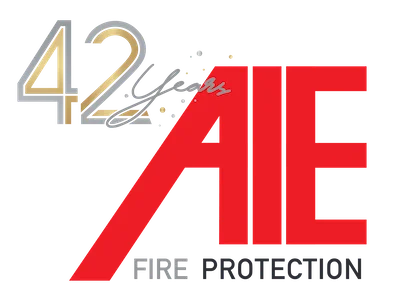
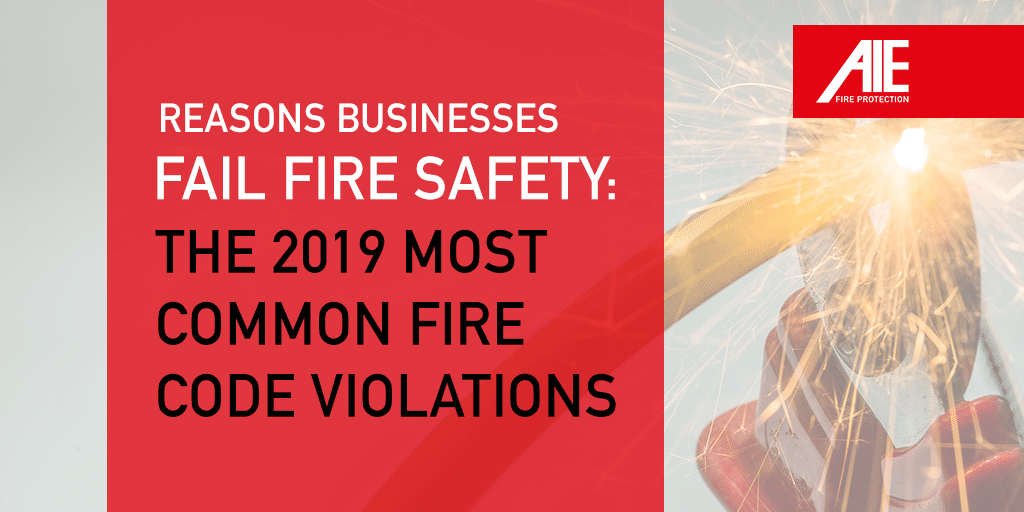

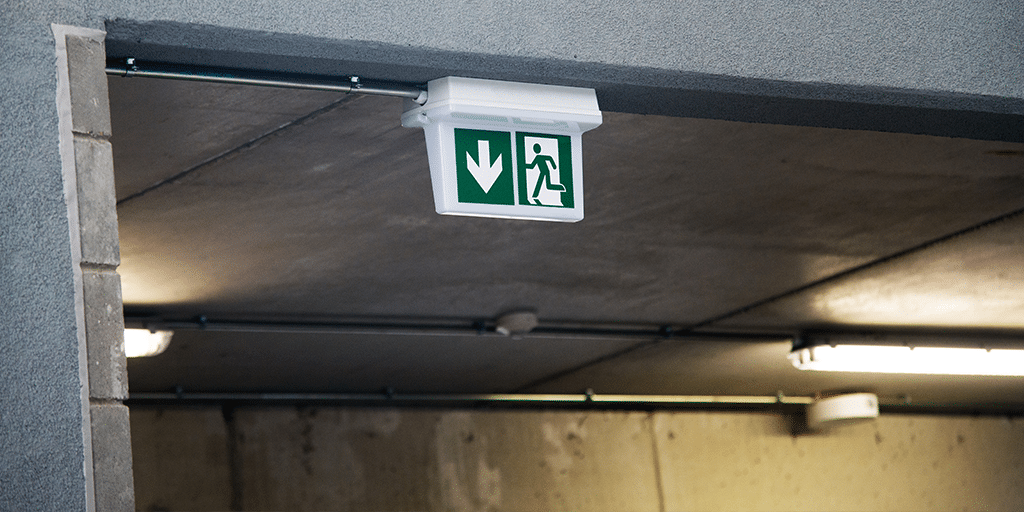
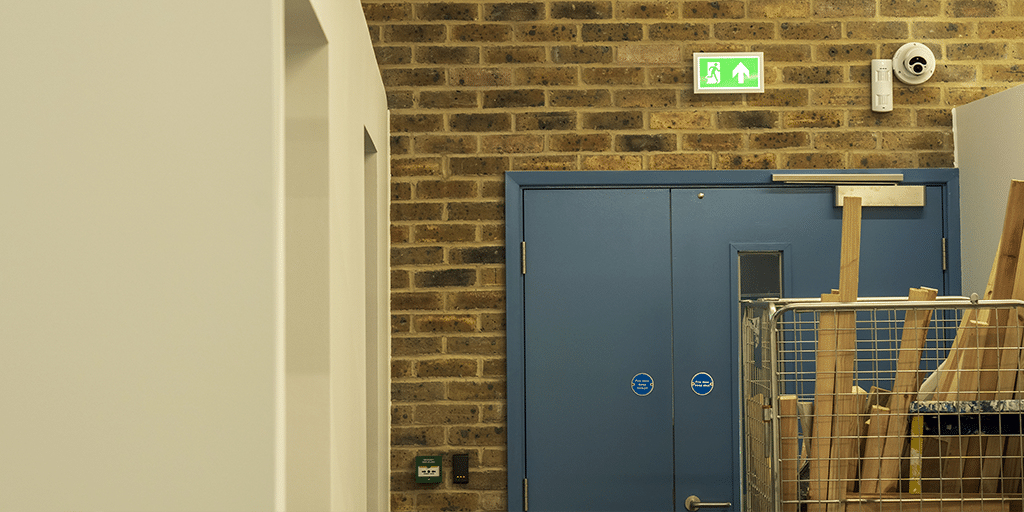
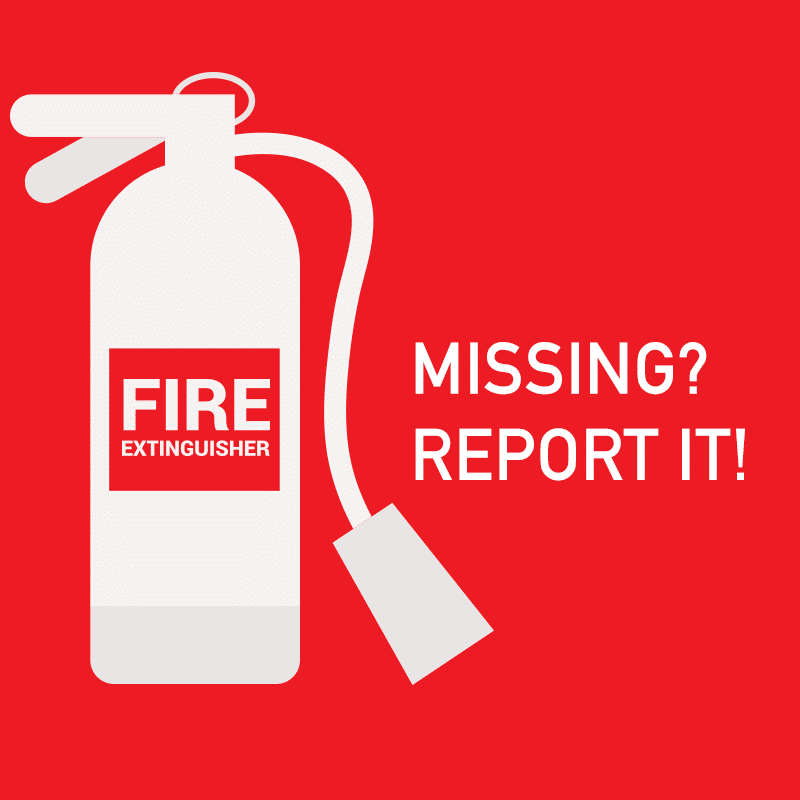

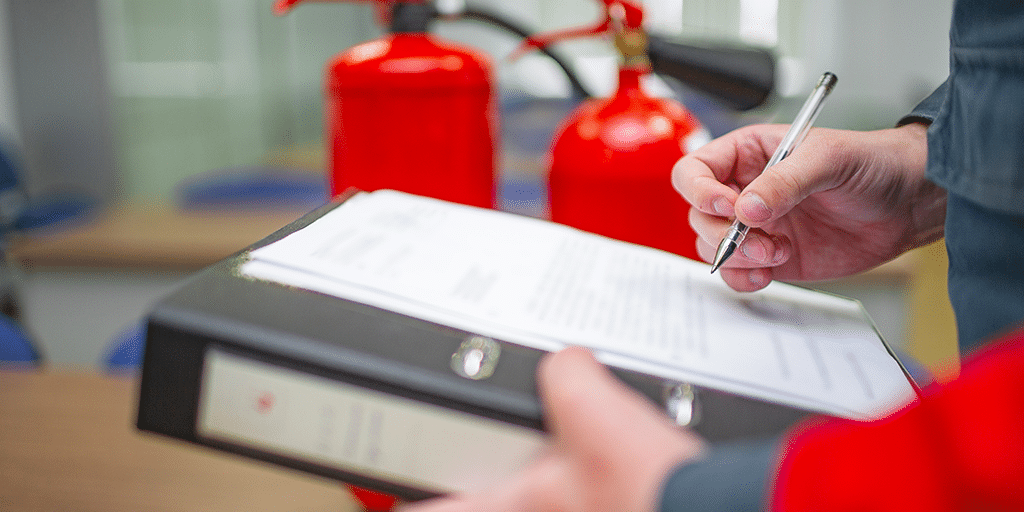
Recent Comments